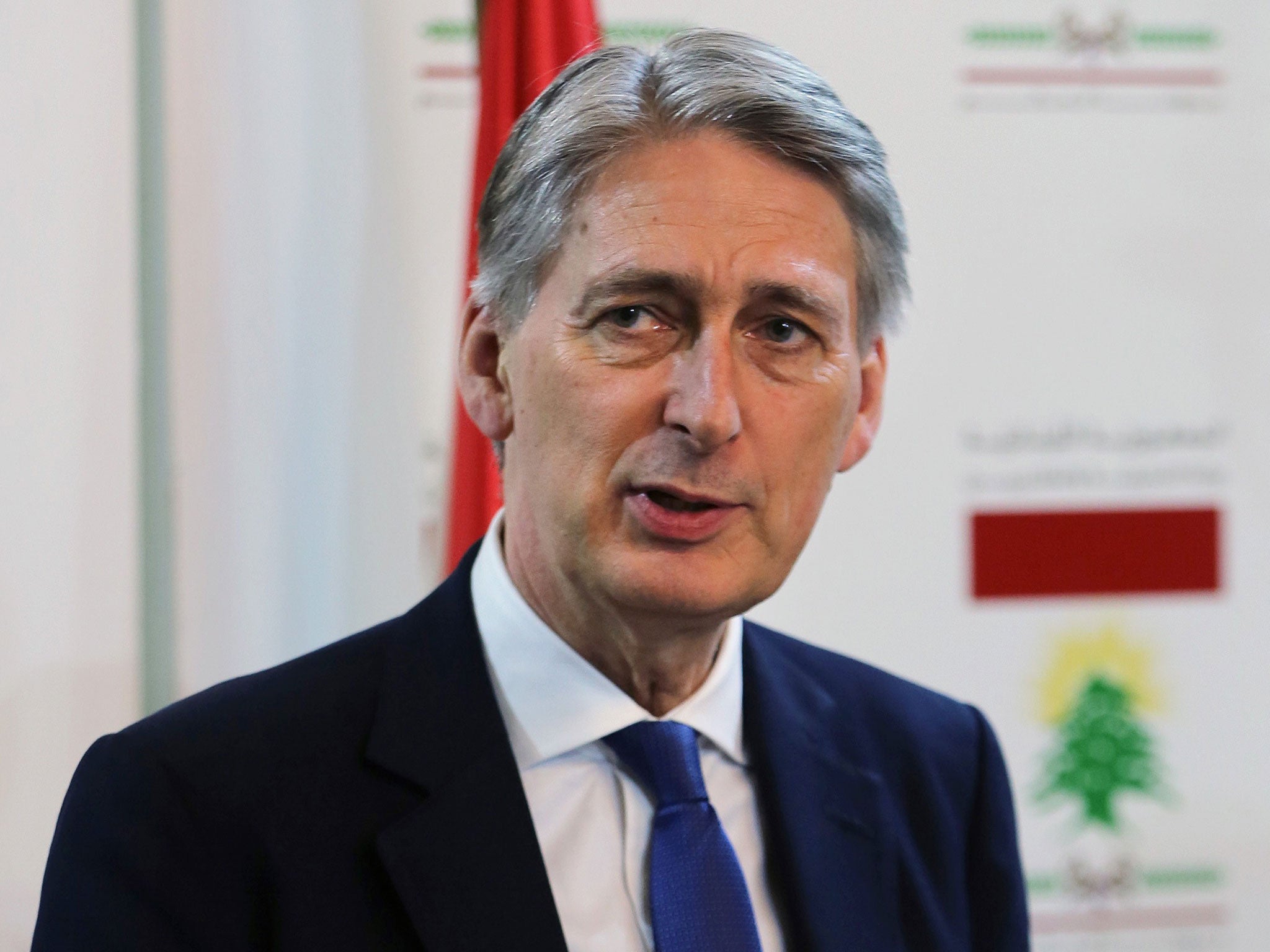Europe now priority region to tackle terror threat, says Philip Hammond
Foreign Secretary an anti-terror hub will be set up in Europe, mirroring those in the Middle East, Africa and South Asia

Europe is now regarded as a one of five priority regions for counter-terrorism operations, alongside north Africa and the Middle East, the Foreign Secretary has said.
Philip Hammond said the UK would set up a counter-terror ‘hub’ in Europe, with officials working in Belgium and Turkey.
He said that while Britain was safer staying in the EU, other European countries were “less prepared” than the UK for the heightened terror threat posed by Isis and its loyalists.
The Government’s strategic defence and security review last November led to plans for counter-terror hubs in regions where threats are most likely to originate: the Middle East, North and Sub-Saharan Africa, and South Asia.
However, Mr Hammond told the Financial Times that as a result of the Paris attacks in November and the Brussels bombings last month, a fifth hub would be set up in Europe.
He said that intelligence and security services in other European countries lacked the UK’s long experience of combatting extremist and dissident threats, and said that different security agencies were sometimes less well integrated within European states than they are within the UK.
“We do not want to be bragging, but we would say that we have the most capable intelligence and security services in Europe,” Mr Hammond said.
Meanwhile, the UK’s top general in Nato said that the military alliance could be doing more help countries combat extremism.
General Sir Alan Bradshaw told BBC Radio 4’s Today programme that Nato could use its international perspective to draw attention to the benefits of “complementary” counter-radicalisation strategies, citing a programme in Jordan “to train imams in the tolerant, traditional form of Islam”.
"I think it is our responsibility to make sure that people understand what sort of complementary activity needs to go alongside the security activity that we're directly involved in,” he said.
Subscribe to Independent Premium to bookmark this article
Want to bookmark your favourite articles and stories to read or reference later? Start your Independent Premium subscription today.

Join our commenting forum
Join thought-provoking conversations, follow other Independent readers and see their replies